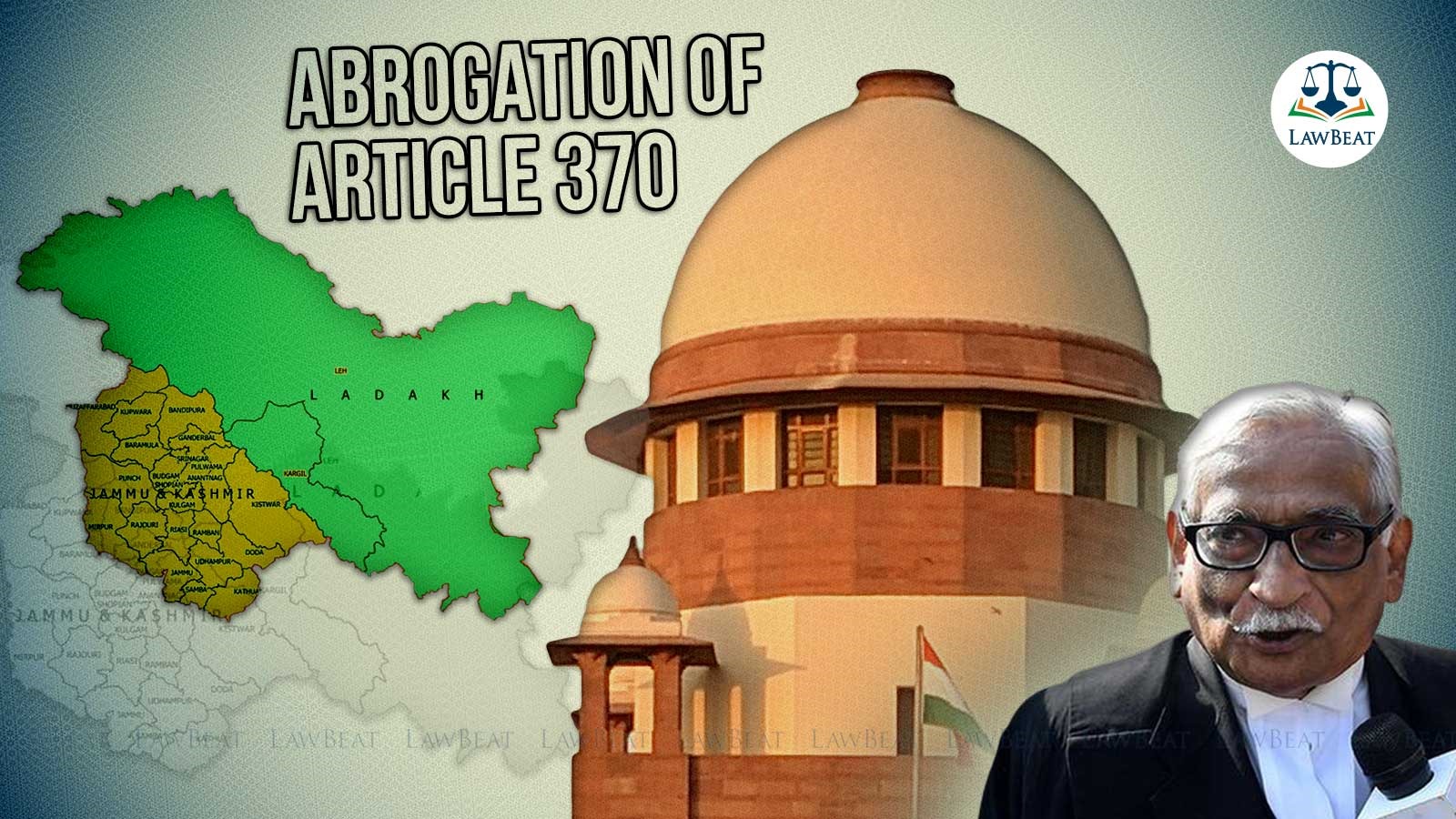J&K never lost internal sovereignty, Article 370 substitute for merger agreement: Senior Adv Rajeev Dhavan tells SC

Dhavan said today that a lot of questions were asked in the Parliament before the abrogation took place, but the government always answered with a no and then on August 5, 2019, Article 370 was done away with, without any concurrence.
The Supreme Court was told today that Jammu and Kashmir lost its external sovereignty post the Instrument of Accession, but not internal sovereignty.
"On the status of the merger agreement, the Court said earlier that post the instrument of accession, sovereignty was surrendered absolutely. My submission on that is, external sovereignty was lost post the IoA, not internal.. please see the IoA that defines the extent of internal sovereignty, Article 370 was substitute to the merger agreement, without which we are lost...", Senior Advocate Rajeev Dhavan further told a five judge bench hearing pleas challenging abrogation of Article 370.
Referring to Article 356 of the Indian Constitution, which gives the President that power to power to suspend state government and impose President’s rule on any state in the country, the senior counsel added that said provision was the bane of the Indian Constitution.
"Article 356 is the bane of the Indian Constitution...It has been used and abused. To the point where there must be some control on it...it is certainly not a power to amend the Indian Constitution..Transferring executive and parliamentary functions is the core of Article 356 and 357..it has to be limited..otherwise what happened 5th August onwards, can happen to any other state..", a CJI Chandrachud led bench has been further told.
The bench also comprising Justices SK Kaul, Sanjiv Khanna, BR Gavai and Surya Kant was told that while President's rule was in place Article 3 and 4 could not be invoked as the conditionalities that exist under these provisions, the Parliament or the President cannot be substitutes for the State legislature or Governor.
Relying on the process through which the NCT of Delhi was created, Top court has been told,
"State has become two Union territories. This was not within the remit of Articles 3 and 4..and without reference to Article 239A..you should have done what was done with Delhi.. You cannot standardise provision and say we give autonomy here, but we will not give it to J&K..J&K is not a dead horse..it is important to understand and not wish away the autonomy in Indian federalism."
Timeline of petitioner's arguments:
On Day 5 of the hearing, Senior Advocate Zafar Shah had told the Constitution Bench that the erstwhile state of Jammu and Kashmir had not entered into a merger agreement with Union of India like the other princely states, and therefore it had Constitutional autonomy.
On the nature of the abrogated provision, Shah added that if Article 370 was not wanted, it had to be seen if it was temporary or had it become permanent, because the machinery was not available to remove it.
On Day 4 of the hearing, Senior Advocate Gopal Subramanium had submitted that the Jammu & Kashmir Constitution and Indian Constitution spoke to each other and they are complimentary to each other.
".the two constitutions speak to each other through Article 370...The Article 370 was not a repository for untrampled power...it was a medium through which the India Constitution could be applied..and here lies the dual obligation, which has to be discovered in the words of S. 147 of J&K Constitution and Article 370 of the Indian Constitution..", the Supreme Court was told.
Senior Advocate Sibal had on Day 3 concluded his arguments before the Constitution Bench. He argued that the power under Article 3 of the Constitution does not extend to effacing the character of a State into a Union Territory.
Referring to the government's majority in the parliament, through which it passed The Jammu and Kashmir Reorganisation Bill, 2019, Sibal said, "This majoritarian culture cannot destroy the edifice of what our forefathers gave us..they cannot do what they like if they have a majority.."
On Day 2 of the hearing, dealing with the petitioners submission that the parliament could not have amended the Constitution to abrogate Article 370, CJI DY Chandrachud had questioned if a new category was being created apart from the basic structure that could not be amended.
Sibal had on Day 1 of hearing, told the Supreme Court that the central government abrogated through a political act Article 370 of the Constitution of India, which granted special status to the erstwhile state of Jammu and Kashmir.
"...the govt of the day is staring at this provision and according to me through a political act, not a constitutional procedure declare that it was to be tossed out of the window..such a political act cannot be done by the parliament, it cannot take such a decision..", Sibal had said.
Case Title: IN Re: ARTICLE 370 OF THE CONSTITUTION
